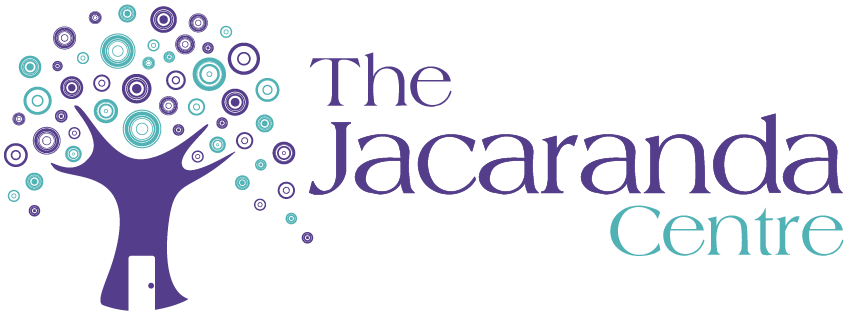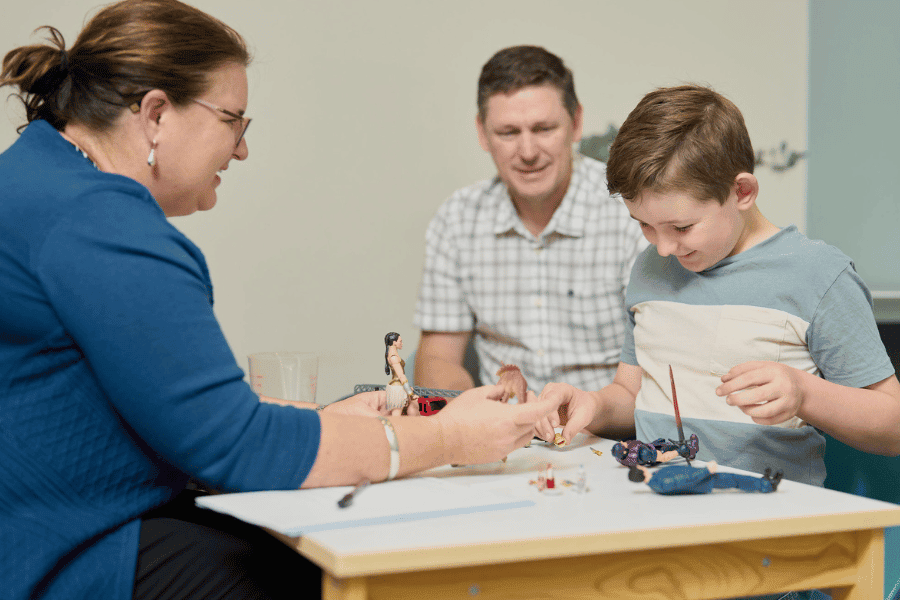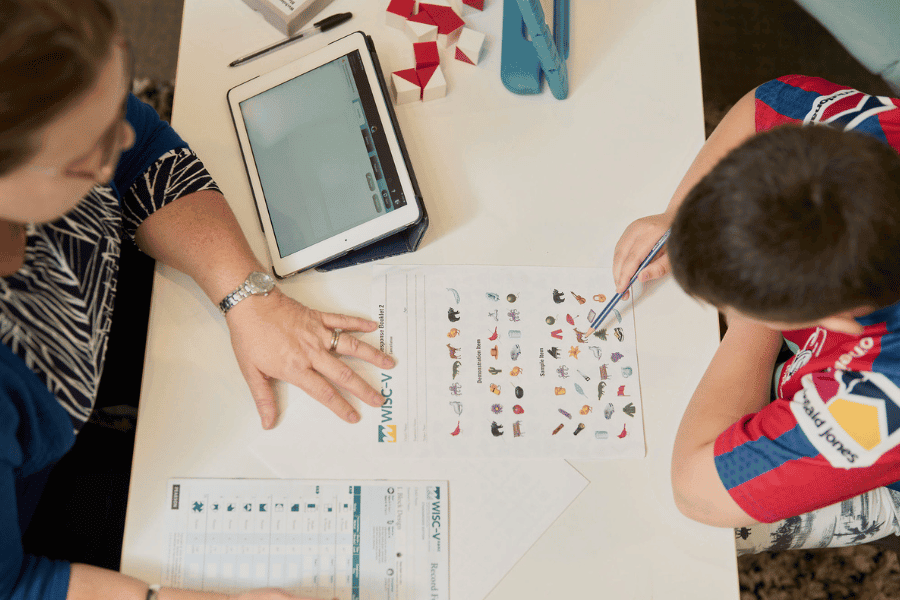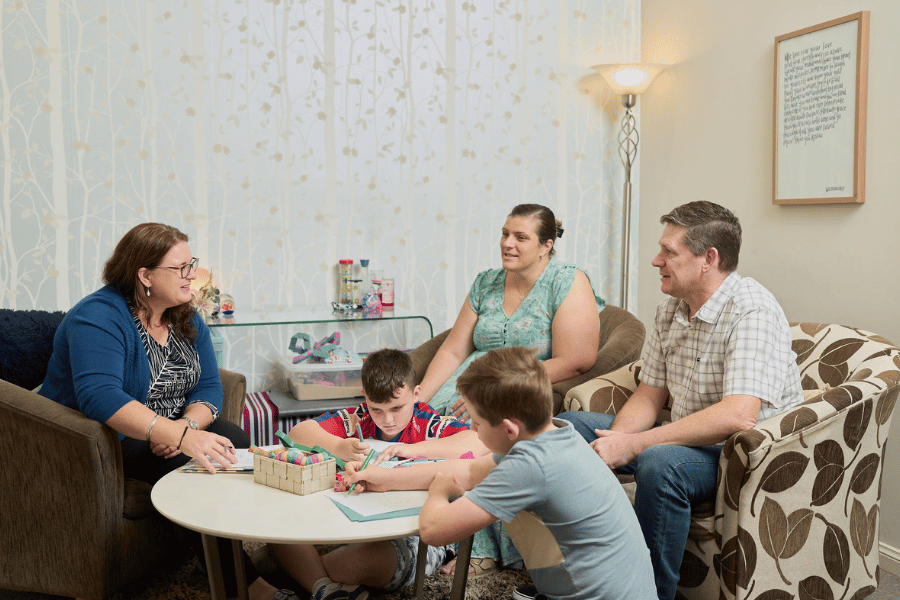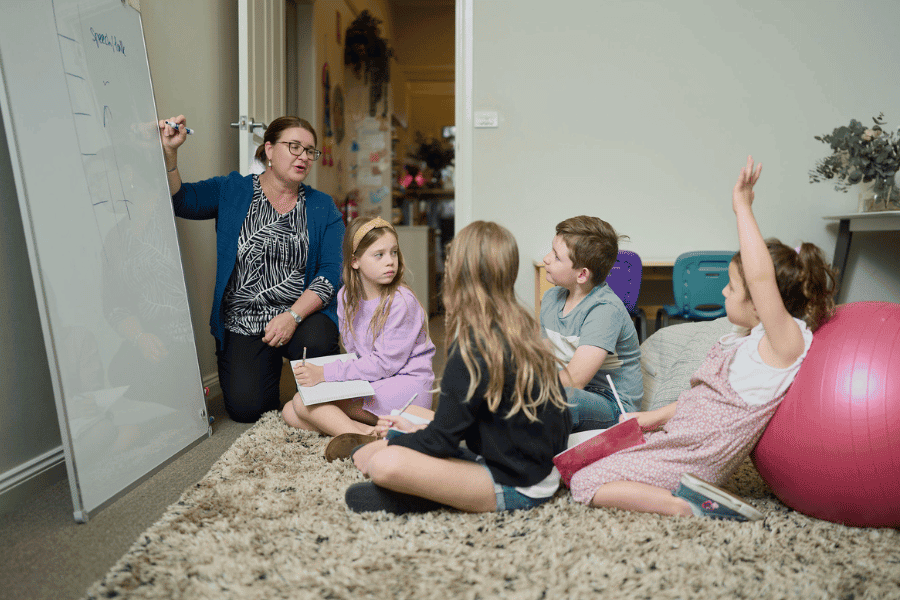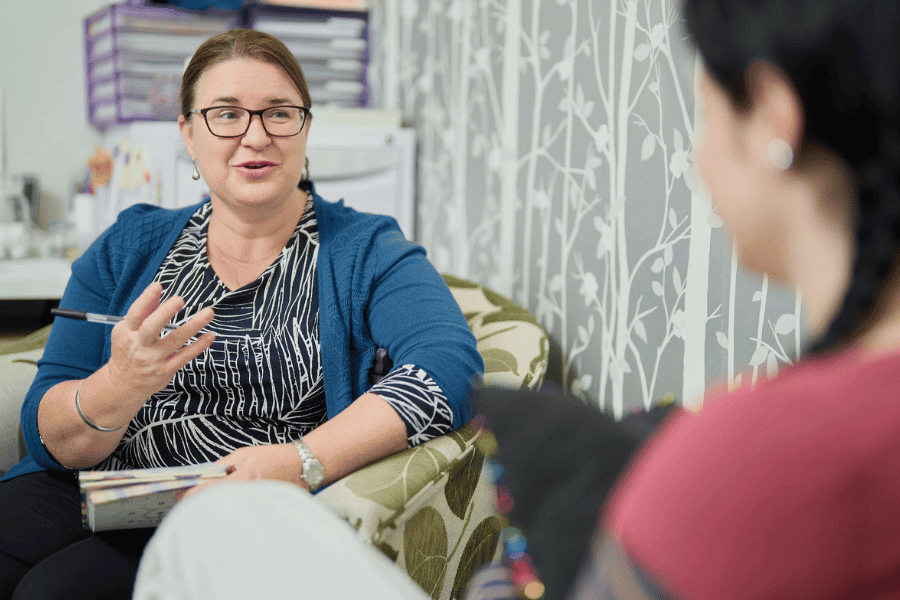Our Services
The Jacaranda Centre is a Psychology Practice focusing on supporting children, adolescents and their families across a range of presenting challenges.
We respect the value of each and every child, and delight in the differences that each child brings – even the challenging ones!
We offer assessments for all psychological and developmental aspects of childhood, including behavioural difficulties, developmental delays, autism, learning difficulties, IQ/cognitive testing, ADHD, mood disorders (anxiety/ depression), attachment and trauma.
Group programs for children and parents are offered from time to time in our cosy and comfortable purpose-built space.
We love meeting new families at the Centre and look forward to being able to support your child and family.
Counselling and Therapeutic Interventions
We work with children and young people from approximately 4 to 18 years for therapeutic support regarding the full range of concerns that present during these key developmental years. We believe in maximising the potential of each and every child, and employ techniques from a wide range of therapeutic models to assist the children and young people we are privileged to meet in their life journey. Therapies include Behaviour Therapy, Cognitive Behaviour Therapy, Acceptance and Commitment Therapy, Brief Solution Focused Therapy, Narrative Therapy, Family Therapy, Dyadic Developmental Psychotherapy, Collaborative and Proactive Solutions (CPS) and we frequently use creative play tools to assist our children to feel safe and engaged.
At The Jacaranda Centre we also provide therapeutic and intervention support to parents or carers of children and young people of all ages for support with parental strategies to manage complex behaviours and emotional / psychological difficulties.
We provide diagnostic opinion of children 2-18 years who are presenting with complex behaviours or concerns, including but not limited to disorders of attachment, mood, behaviour, trauma, autism spectrum, and developmental delay; see below for further information.
Assessment
You will not find a ‘one size fits all model’ for assessment at the Jacaranda Centre. We plan assessments based on your child’s needs.
We only use evidence based, standardised measures that have been peer reviewed and published with high standards of reliability and validity for use with your child. Unlike other practices, we make the effort to observe and assess your child in their preschool/ school setting as well as in our controlled centre setting to gain accurate information about your child’s functioning. This better informs assessment and diagnostic outcomes, giving you confidence in our findings. You can be assured that the assessments we undertake are thorough, best practice and in line with guidelines by National authorities.
Assessments are generally required to determine what kind of problems your child is facing, and to what degree this may differ from other children at their chronological or developmental level. An assessment may involve gathering information by parent checklist, or it may involve a more in–depth direct assessment with your child.
An assessment by a Psychologist can generally determine whether your child meets the criteria for a mental health, developmental or behavioural diagnosis and when provided in a report, this can then be used to support application through schools or other agencies for support (ie Department of Education, National Disability Insurance Agency).
Even with an established diagnosis, a re-assessment of a child’s functioning is often an important part of monitoring and evaluating their progress from support services and to track their development over time. Re-assessments are rarely needed within an 18 month – 2 year time frame from previous assessment however we can discuss this with you if an assessment has been recommended to you by another professional.
Autism Assessment
- We utilise the ‘gold standard’ assessments – the Autism Diagnostic Observational Schedule, Revised (ADOS-2) and Autism Diagnostic Interview, Revised (ADI-R). These assessments, combined with other information sources, allow us to determine if a client’s challenges meet the criteria for a diagnosis of ASD, and are sensitive enough to determine which Level (1, 2 or 3) that person requires support according to the Diagnostic and Statistical Manual of Mental Disorders, Fifth Edition (DSM-V; APA, 2013).
Developmental/Cognitive/IQ Assessments
We have a full range of IQ / cognitive assessments for across the lifespan available including:
- the Wechsler Preschool and Primary Scale of Intelligence, Fourth Edition (WPPSI-IV) which can be used to assess for school readiness in children starting school or to assist determining possible learning problems in children up to 7 years and 7 months. The WPPSI-IV can be administered to children as young as 2 years 6 months.
- As well as the traditional manual version of this test, we now also have the innovative digital version of the Wechsler Intelligence Scale for Children, Australian and New Zealand, Fifth Edition (WISC-V A&NZ) WISC-V intelligence test for children aged 6 years – 16 years 9 months which utilises ipad technology to administer the tests rather than relying on paper and pencil tests which may not engage to child’s interest as well as the new version.
- We now have the adult IQ assessment tool, the Wechsler Adult Intelligence Scale, Fourth Edition (WAIS-IV) which is suitable for young adults aged 16 years and older.
- Developmental assessments for children as young as 12 months and up to 6 years can be provided with the Griffiths-III developmental assessment. This, along with other information, enables us to determine whether a child may have a Global Developmental Delay and/or a need for Early Intervention Support.
Learning Assessment
Learning is a large part of growing up and difficulties with learning can create great difficulty in the school and home environment if left undiagnosed and untreated. We have access to a range of learning and achievement based assessments including but not limited to:
– the Wechsler Individual Achievement Test, Australian and New Zealand Standardised, Third Edition (WIAT-III A&NZ),
– the NEPSY, A Developmental NEuroPSYchological Assessment (for ages 3 – 16 years) to evaluate neuropsychological development across six domains;
– the Kaufman Assessment Battery for Children (KABC).
To support the above assessments, or often as a stand–alone method to gathering more information about your child in a standardised way to best direct interventions, we regularly use a wide range of clinical checklists, often described as behavioural, emotional or psychological assessment tools.
Fees
We have a range of payment methods available to make this part of working with us as simple as possible. Our systems allow the immediate processing of Medicare rebates and Private Health Fund claims at the time of your appointment.
Cost Structure
- The cost of sessions will vary depending on the type of intervention or assessment required.
- The process and cost of assessment will be discussed with families at the time of referral, or for more complex requests, during the initial appointment with your Psychologist.
- Fees range from $205 per 60 minute session.
Please note, we are not a bulk billing practice.
Referrals and Rebates
A referral to see a Psychologist is NOT necessary, however you will need a referral from either a GP, Paediatrician or Psychiatrist to claim a government funded Medicare rebate.
You can ask your GP for a Mental Health Treatment Plan when eligible to claim up to 10 rebates per calendar year saving you $93.35 to $137.05 per session.
We encourage you to check with your Private Health Fund prior to attending so that you know what your costs will be, otherwise we can provide you with a quote via our TYRO terminal and let you know the out of pocket expense when you attend the Centre.
Government rebates for Psychology Services through Medicare:
- Mental Health Treatment Plan
- Chronic Disease Management (previously known as Enhanced Primary Care)
- Better Start for Children with Disability
- Helping Children with Autism
NDIS:
- We are a registered NDIS provider for Early Intervention and Therapeutic Supports but currently have only limited availability for ongoing therapy. We are able to provide assessments using NDIS plans if required and if the scope of the plan allows for this.
- Your child’s NDIS plan must be sent to us before we agree to meet you, so that we can determine if the goals in the plan and item codes for funding match your request and goals for psychology involvement to ensure we are able to cater to your needs.
- Further information regarding the National Disability Insurance Scheme for Participants is available from the website https://www.ndis.gov.au/index.html
Group Sessions
At The Jacaranda Centre we recognise that not everyone wants or needs to see a therapist one on one. This is where groups can be a great avenue to access support and information, in a group of peers with similar difficulties which can be validating and may even facilitate change faster than from individual therapy in some cases.
We are passionate about facilitating growth through group learning which is an exciting and cost effective way to gain knowledge and social support.
Group Therapy
Attending a group can also be a good addition to having individual therapy, especially where people feel alone in their problems and will benefit from discussing and practicing skills in the group context. It is usually a good idea to take a break from individual therapy while attending a group.
Groups can also be a more affordable option compared to individual therapy, costing usually around one third to half the cost of one on one appointments. Additionally, if the person attending the group is eligible for a Mental Health Treatment Plan from their GP then up to 10 group sessions can be rebated per calendar year, on top of the 10 sessions available in individual therapy (that is, 20 rebates in total).
If your child has an NDIS plan that allows for early childhood or therapeutic supports then they may be able to attend under their NDIS plan.
Children’s Groups
- Cool Kids (anxiety management for children aged 7 – 12yo)
- Cool Kids, ASD adaptation (for children aged 7 – 12yo with an Autism spectrum diagnosis)
Groups for Parents and Carers
- Cool Little Kids (anxiety management in young children under 6yo, this group is for parents)
- Tuning Into Kids (for parents who want to understand their children’s behaviours/emotions)
- Circle of Security (for parents who want to connect to their children more)
- Bringing Up Great Kids (for parents who want to understand themselves as parents and why they parent the way they do – with an aim of improving connection if needed, and establishing clear behaviour management)
Building Social Skills
Several of our team members are trained and proficient in running the Westmead Feelings Program intervention program teaching autistic children about emotional understanding and social awareness, in close collaboration with parents and teachers. Not just clinic-based, the Westmead Feelings Program develops parents’ and teachers’ emotion coaching skills, supporting children to understand emotions, solve problems and ultimately manage their feelings in everyday settings.
Workshops
Please contact us to request a seminar for your workplace either at The Jacaranda Centre or in your place of work.
We have a fully equipped seminar room for your comfort which takes the stress out of organising space in your own workplace. We do all of the set up and pack up, as well as provide refreshments so that your team can focus on getting the most out of the content, free from workplace distractions.
Recent presentations from our psychologists include
- Strategy development for a local preschool regarding management of children with challenging behaviours;
- Speaking with educators about preparing and supporting children with transition to Kindergarten;
- An explanation of the processes involved in psychology assessments and reports for a large NDIS provider;
- Discussing child developmental assessments and differential diagnosis with local GPs.
- Running workshops for Year 6s to support transition to High School
Enquiries and Referrals
10 Harrison Street, Cardiff NSW 2285
Email: admin@thejacarandacentre.com.au
Phone: (02) 4954 8822
Fax: (02) 8331 5789
- Mon 9-5pm
- Tue 9-6.30pm
- Wed 9-5pm
- Thurs 9-5pm
- Fri 9-5pm
